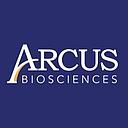
Associate Director, Small Molecule Analytical Sciences
Arcus Biosciences
Full-time
On-site
Hayward, CA
$195,000 - $215,000 USD yearly
Clinical Research and Development
Want to see how your resume matches up to this job? A free trial of our JobsAI will help! With over 2,000 biopharma executives loving it, we think you will too! Try it now — JobsAI.
Role Summary
Responsibilities
- Authoring technical development reports and drafting/authoring regulatory CMC/analytical sections for IND, IMPD (and equivalent global filings), NDA, and responses to agency questions
- Method development, impurity characterization, experimental design, and analytical testing
- Management of CDMO/CRO activities (i.e., release, stability, method validation/transfer)
- Manage/Conduct in-house testing to support internal drug substance and drug product development
- Review and approval of internal and CDMO analytical data and deliverables
- Infrastructure development, such as authoring SOPs, guidelines, and contributing to enhancement of in-house laboratory capability
- Collaborate with cross-functional CMC teams (including QA and Regulatory) to achieve project goals
- Potential to serve as analytical lead on CMC teams, and must be able to make technical decisions, guide strategy and escalate risk appropriately
Qualifications
- PhD with 7+ years of relevant industry work experience; or MS with 9+ years of relevant industry work experience; or BS with 11+ years of relevant industry work experience
- Proven track record supporting small molecule drug substance and drug product development from early to late phase, with strong preference given to those with direct experience preparing for and contributing to NDA filing
- Demonstrated hands-on experience writing CMC analytical sections of regulatory submissions and handling agency queries, with strong preference for those that have authored global filings
- Strong understanding of regulatory requirements (pertinent to innovator drugs), ICH and regional health authority guidelines (FDA, EMA, MHRA, PMDA, etc.), and experience in executing phase-appropriate practices, particularly those relevant to late phase development
- Expertise in chromatography (primarily HPLC), impurity analysis (and control strategy), mass spectrometry, dissolution method development
- Extensive practical experience in small molecule analytical testing techniques (e.g., HPLC, GC, MS, Karl Fischer, dissolution)
- Experience in setting specifications, performing product characterization and comparability studies, conducting formal stability studies, method development/validation, and lifecycle management
- Substantial experience in managing CDMOs/CROs for analytical work (method transfer, validation, stability studies)
- Understanding of and experience in GMPs pertinent to analytical testing, including change controls, CAPAs, deviations, investigation reporting
- Excellent communicator and technical writer with evidence of writing high-quality regulatory documents and relevant supporting technical reports
- Strong technical decision maker, with excellent awareness of timelines, and able to work under tight deadlines in a fast-paced environment
- Hands-on, detail-oriented, committed to ownership and follow-through
Education
Additional Requirements
- PHYSICAL REQUIREMENTS:
- Frequently stand, walk, twist, bend, stoop, squat, grasp lightly, use fine manipulation, grasp forcefully, perform desk-based computer tasks, use telephone, write by hand, lift, carry, push and pull objects weighing over 40 pounds.
- Occasionally sit, kneel, crawl, reach and work above shoulders, sort and file paperwork or parts.
- Rarely climb, scrub, sweep, mop, chop and mix or operate hand and foot controls.
- Must have correctible vision to perform duties of the job.
- Ability to bend, squat, kneel, stand, reach above shoulder level, and move on hard surfaces for up to eight hours.
- Ability to lift heavy objects, possibly weighing up to 50 pounds.
- Position may require repetitive motion.
- WORKING CONDITIONS:
- May require working near blood borne pathogens.
- May require work in an environment where animals are used for teaching and research.
- Position may at times require the employee to work with or be in areas where hazardous materials and/or infectious diseases are present.
- Employee must perform tasks that require the use of personal protective equipment, such as safety glasses and shoes, protective clothing and gloves, and possibly a respirator.
- May require extended or unusual work hours based on research requirements and business needs.